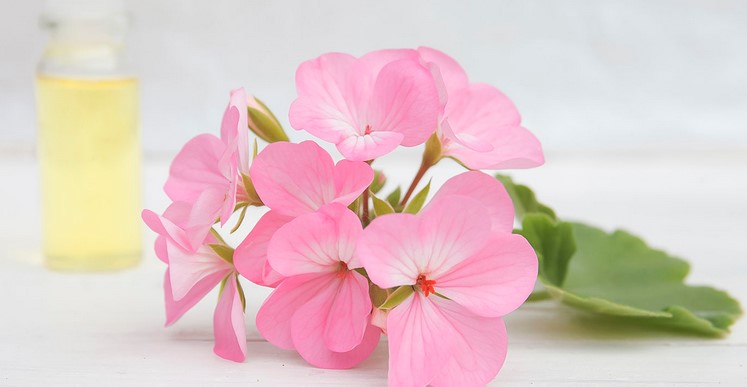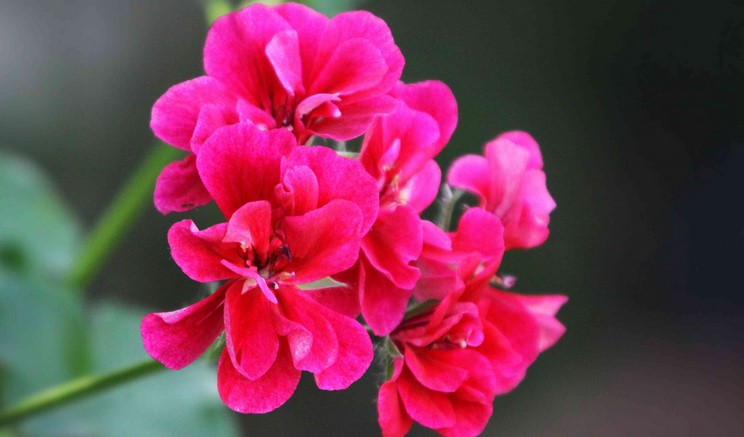Geranium is a genus of four hundred and twenty two species found worldwide. Commonly known as geraniums, they are native to the temperate regions of the world. They also occur in the mountains of the tropics. However, they are most commonly grown in the eastern Mediterranean region.
Geranium oil is widely used as an ingredient in perfumes and cosmetics. The essential oil is also used in aromatherapy to treat a number of health conditions. In aromatherapy, essential oils are inhaled using a diffuser, or diluted with carrier oils and applied to the skin for soothing benefits.

Plant characteristics
Geraniums are native to South Africa, where they were brought to Europe in the seventeenth century. France was the first country to cultivate them for their essential oil. It was then exported to other French colonies in Africa and other parts of the world. Today, geranium cultivation is an important commercial activity and has spread to many countries.
Geraniums are perennial plants that are winter hardy in zones 10-11, and can be grown as an annual in zones three through nine. They can grow between 2 and 4 feet tall. Dwarf geraniums, on the other hand, can reach a height of up to 5 feet. They can also spread up to 48 inches across. Geraniums are best grown in full sunlight, but some species tolerate partial shade. In hotter climates, they should be protected in the afternoon. Geraniums can grow in containers and are known for their long blooming season.
Health benefits
Geranium is a plant that’s highly beneficial for skin problems and infections. It can also help alleviate post-menopausal symptoms. Additionally, it’s beneficial for depression, chronic anxiety, and anger issues. These benefits are just some of the many ways geranium can be helpful to you. So, what exactly are these benefits? Keep reading to find out more! Geranium’s health benefits are numerous and varied, and are sure to leave you feeling better.
Geranium is a hardy flower with candy-coloured flowers and a rich rose-like fragrance. While this plant’s delicate petals make it attractive to most gardeners, it’s more than just a pretty plant to look at. Geranium’s benefits for the skin include reducing wrinkles and other signs of aging.
Common names
The geranium is a classic bedding plant that can thrive in containers and landscapes. They have low maintenance needs and flower in a wide range of colors, from white to red. Their zoned leaf markings lend the flower its name. Here are a few common names of geraniums.
Geranium is a member of the Geraniaceae family. It has a prickly growth habit and flowers early. Its leaves are three and a half inches wide and semi-evergreen. Insects pollinate this plant, so it is not difficult to grow in almost any type of soil.
Common cultivars
Geraniums come in many different colors and cultivars. Most of them are easy to
grow and require little maintenance. Some varieties are particularly attractive and popular. Depending on your taste and needs, you may opt for a common or a hybrid variety. If you’d like to mix up your garden, interspecific hybrid geraniums are a great option. These plants combine the characteristics of their parents and are an excellent choice for a woodland garden.
Geraniums are known for their distinctive scents, and you can choose between scented and unscented varieties. Scented varieties have fragrant leaves and flowers that release fragrance when touched. If you prefer a mild scent, you may want to pick a lemon-scented geranium.

Common uses
Geranium essential oil is a powerful anti-stress and anti-anxiety remedy. Its refreshing aroma soothes the senses, allowing you to relax and unwind. You can use the oil to apply to your chest or rub it over your nose and mouth for a soothing effect.
It can be added to facial products to help you achieve healthy, youthful-looking skin. It can also be applied to your hair to give it shine. This essential oil also works well in bathwater to create a relaxing aroma.
Geranium is a safe, versatile essential oil with multiple health benefits. Its uses include treating anxiety, arthritis and eczema, among others. As an added benefit, it smells great and can be used in a variety of ways. Consider getting a diffuser to help you reap the benefits of this effective essential oil and enjoy its pleasant fragrance.








